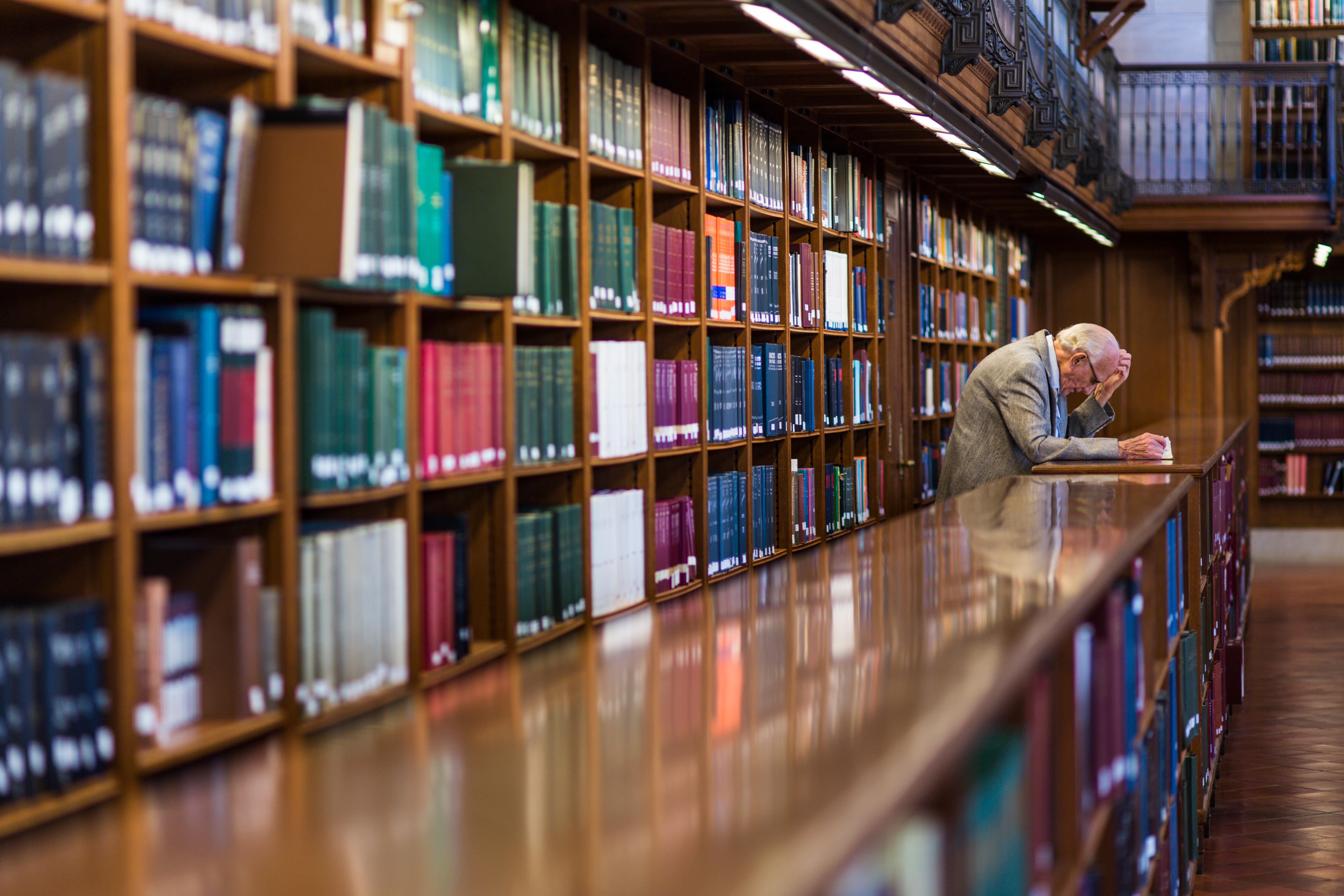Public libraries are a treasure
Go to the library. Read a book.


A free daily email with the biggest news stories of the day – and the best features from TheWeek.com
You are now subscribed
Your newsletter sign-up was successful
When I moved to New York City two years ago, there were a few things at the top of my to-do list: Find my closest bank branch, master my local laundromat, and sign up for a library card.
I'd only ever signed up for a public library card once, and it was quite literally just to fulfill a middle-school homework assignment. So allow me to share one of the greatest revelations of my adult life, and forgive me if it sounds obvious to you: Public libraries are a treasure.
There are more than 16,000 public library buildings in the U.S., providing books and research materials and learning services and after-school programs and internet access to neighborhoods all across the nation. And lucky for me, there's a massive outpost of the New York Public Library just down the block from The Week's office in Manhattan (perks!).
The Week
Escape your echo chamber. Get the facts behind the news, plus analysis from multiple perspectives.

Sign up for The Week's Free Newsletters
From our morning news briefing to a weekly Good News Newsletter, get the best of The Week delivered directly to your inbox.
From our morning news briefing to a weekly Good News Newsletter, get the best of The Week delivered directly to your inbox.
For late-blooming recreational readers like me, the public library is a godsend. A four-minute walk from my desk, and I'm face-to-face with thousands of books, from the ones I loved in school and want to re-visit to the ones I never got around to cracking, the buzzy new ones I've heard of to the many more I've never heard of at all. It's a place where it's safe — encouraged even — to literally judge a book by its cover, where I can get sucked in by an arresting illustration or an engaging back-cover summary and only have to swipe my bright orange card for the right to lose myself in another world. It's a place where taking chances is encouraged, where your worst gamble can only last a few weeks at the most before you drop it into a deposit box by the due date and move on to the next adventure.
You might think libraries are outdated. Why drag yourself to a brick-and-mortar book warehouse, where you have to rifle through shelves of confusingly sorted offerings with maybe-yellowed pages that god knows how many germy fingers have thumbed, where there's an expiration date on your ownership and where, at the end of it all, you have to actually carry a book around?
You scoff at the thought: Isn't that the burden from which Kindles and iPads evolved to free us?
Well, maybe. But all that slim technology can't replace the tactile satisfaction of turning a real-life page, the delight of seeing just how far you've made it through a fat paperback, or the exhilaration of picking a random book off the shelf and ending up infatuated with it. If you're like me, the ritual of being a "library-goer" might even add a smug little pep to your step, as if you're smart enough to take advantage of this open secret that everyone seems to be shelling out hundreds to eschew, choosing instead to spend yet more time staring into a screen.
A free daily email with the biggest news stories of the day – and the best features from TheWeek.com
All of that is tangential still to the immense positive effects libraries have on communities, where they're sometimes the only available access to free computers and internet, or where after-school educational programs can act as informal child-care services for working parents. Ambitious kids can explore subjects that aren't offered in schools, while artists can take advantage of new technology they may not be able to afford on their own. And the more we invest in libraries, the more they can invest in us, with more working hours and increased foot traffic meaning more potential employees can be hired.
"There are few purer expressions of common endeavor in America than the system of public libraries," my colleague Paul Waldman once wrote. "Built in cities and hamlets, in places big and small, they brought knowledge of the wider world to anyone who wanted it, no matter his or her station."
For all the talk about wasted taxpayer money, it's wasted taxpayer opportunity we're dealing with here. So go: Check out your local public library. I know I have at least 30 books awaiting me on my library "For Later" list. I bet you'll find something you like, too.
Kimberly Alters is the news editor at TheWeek.com. She is a graduate of the Medill School of Journalism at Northwestern University.
-
 Film reviews: ‘Send Help’ and ‘Private Life’
Film reviews: ‘Send Help’ and ‘Private Life’Feature An office doormat is stranded alone with her awful boss and a frazzled therapist turns amateur murder investigator
-
 Movies to watch in February
Movies to watch in Februarythe week recommends Time travelers, multiverse hoppers and an Iraqi parable highlight this month’s offerings during the depths of winter
-
 ICE’s facial scanning is the tip of the surveillance iceberg
ICE’s facial scanning is the tip of the surveillance icebergIN THE SPOTLIGHT Federal troops are increasingly turning to high-tech tracking tools that push the boundaries of personal privacy
